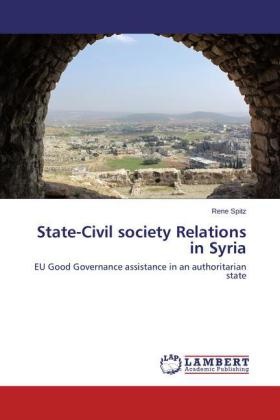Read more
The European Union's (EU) good governance policies consider civil society an actor promoting development as well as political accountability of governments, thus contributing to the democratisation of political systems. By means of its European Neighbourhood Policy (ENP), the EU promotes good governance in its relations and cooperation with neighbouring countries to the East and the South, including Syria. The cooperation in the domain of good governance has not been successful in the southern neighbouring countries, although some governments have allowed civil society to become more active. Indeed, authoritarianism prevailed in the whole Arab region until recently. This study argues that the EU's good governance policy is based on questionable assumptions with respect to the nature of civil society, as well as the willingness of state and civil society to cooperate. Syria, as an extreme case of authoritarianism, is taken as an example. The connotation attached by the EU to civil society in Syria is normative and overlooks its complexity and the character of its relations with the state.
About the author
Rene Spitz studied German, communications and history in Munich and Cologne. He has worked in advertising since 1988, first as a partner in the Munich agency Oesterle, Spitz & Jaeger, then as a free-lance. He was awarded the "Roter Punkt" for high-quality design in 1991. He has published work on themes relating to design history, and reports on the radio and in the specialist press on current events on the design scene

